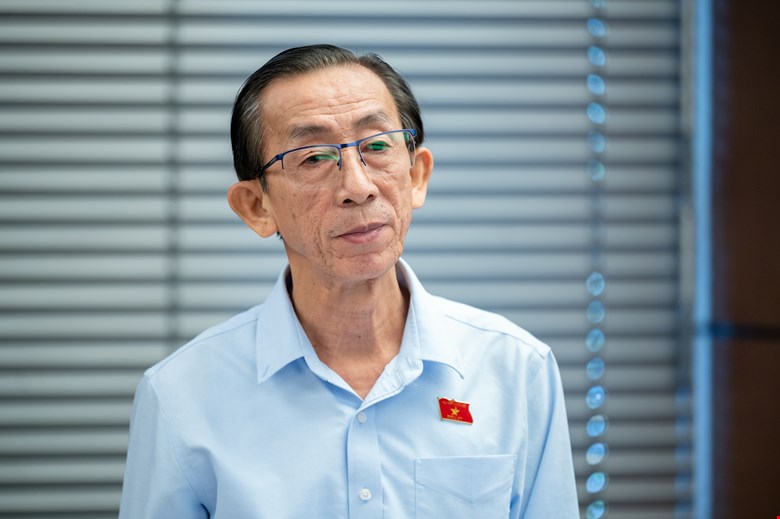General Secretary To Lam signed and issued Resolution No. 68-NQ/TW dated May 4, 2025 of the Politburo on private economic development.
It can be seen that the role of the private economic sector has never been so strongly affirmed when for the first time the private economy is identified as the most important driving force of the national economy.
Speaking with Lao Dong on the afternoon of September 6 on the side of the National Assembly corridor, delegate Nguyen Thi Viet Nga (Hai Duong delegation) affirmed that Resolution 68 marks a very important turning point in the development of the private economy. Our Party's viewpoint has established a new position and position for the private economy.
According to the National Assembly deputies, in the past, our country did not value properly the position and role of the private economy in the overall development of the country, even for a long time only attaching importance to collective economy. At that time, the private economic developers were even considered contrary to the general trend, not respected.
Therefore, with the new guiding viewpoint of the Party at present, the private economy is placed in a very important position and role. This is an economic sector with great contributions, dynamics, quick access to all changes, easy application of science and technology for development.
In addition, the private economy currently employs more than 80% of workers, contributing greatly to the field of labor, employment and social security. However, in recent times, there have not been many regimes and policies for the private economy and there have not been breakthrough incentives for rapid, strong and sustainable development.
A paradox pointed out by the delegate when the private economy employs more than 80% of workers but the contribution rate is 50% of GDP, more than 30% of total state budget revenue. This is a very modest number, which proves that the private economy really needs new attention in terms of mechanisms, policies and other support to make a breakthrough.
The female delegate also mentioned not legalizing economic, administrative and civil relations; not using administrative measures to intervene and resolve civil and economic disputes.
According to the delegate, these are very open and accurate views on economic relations. When we do not institutionalize economic relations, we will also create a comfortable mentality, encourage daring to think and daring to do in economic development, especially the private economy.

Also talking about this issue, delegate Tran Hoang Ngan (HCMC delegation) emphasized that we need to soon institutionalize Resolution 68, creating conditions for the private economic sector to access all national resources in the most favorable way with the most incentives.
There needs to be a mechanism and institution to legalize the policies of the Party and State to help the private economic sector invest heavily in the fields of science, technology, and innovation.
This also requires the draft Law on Science, Technology and Innovation this time to reflect and institutionalize the Party's thinking in the Law.
From there, the new private economic sector will have more conditions to invest more in scientific activities and can develop rapidly, becoming large economic groups on par with economic groups in the world.
Only then can Resolution 68 be realized, turning the private economic sector into the most important driving force in the country's economic development by 2030.











